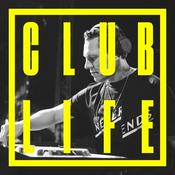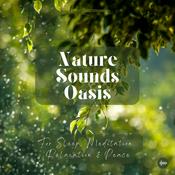'60s '70s '80s - Warm, Candid, Classic, Rock Interviews with Music Legends - A BREATH OF FRESH AIR
Sandy Kaye

Latest episode
220 episodes
- John Coghlan is one of British rock’s most instantly recognisable drummers — a powerhouse player whose relentless, no-nonsense beat helped define the sound and success of Status Quo, one of the UK’s most enduring and best-loved rock bands.
As a founding member, John was there at the very beginning, helping to shape a career that would span decades, rack up millions of record sales, and soundtrack generations of fans.
Born in London in 1946, John Coghlan’s musical journey began early. Like many drummers of his era, he was drawn to rhythm and energy rather than flashy technique, developing a style that was solid, driving and unmistakably his own. In the mid-'60s, he joined forces with Francis Rossi and Alan Lancaster, forming a band initially known as The Scorpions, later Traffic Jam, and eventually Status Quo.
From the outset, Coghlan’s drumming was the engine room — dependable, muscular, and perfectly suited to the band’s evolving sound.
Status Quo first found chart success in the late '60s with their psychedelic hit “Pictures of Matchstick Men,” but it was in the early '70s that the band truly hit its stride.
As Quo pivoted towards a heavier, boogie-driven rock style, John Coghlan’s role became even more central. His straight-ahead, four-on-the-floor approach powered classic albums such as “Piledriver,” “Hello!,” “On the Level,” and “Blue for You.” Songs like “Caroline,” “Down Down,” “Whatever You Want,” and “Rockin’ All Over the World” simply wouldn’t work without that relentless Coghlan groove.
What set John Coghlan apart wasn’t technical showmanship, but feel. He understood exactly what Status Quo needed — a beat you could march to, drive to, and lose yourself in. His drumming became a signature part of the band’s identity, locking in tightly with bassist Alan Lancaster and giving Rossi and Rick Parfitt the perfect platform to do what they did best.
In an era full of increasingly complex rock drummers, Coghlan proved that simplicity, when done right, could be just as powerful.
After more than a decade of non-stop touring, recording and chart success, John Coghlan left Status Quo in '81. The decision came after years of intense work and personal pressures, marking the end of an era for the band and its fans. However, his departure was far from the end of his musical story.
Coghlan remained deeply connected to music, carving out a respected second chapter as a live performer and bandleader.
In the years that followed, he formed John Coghlan’s Quo, later known as John Coghlan’s Status Quo, a band dedicated to celebrating the classic Quo sound.
Fronting the group from behind the drum kit, John brought authenticity and first-hand experience to audiences around the world, performing the songs he helped create with the same energy and conviction that made them famous in the first place.
For fans of early Status Quo, these shows became a chance to reconnect with the raw, boogie-rock spirit of the band’s golden years.
Beyond the stage, John Coghlan has also been open and candid about the realities of life in rock and roll. His autobiography, “Spud – From the Hood to the Good Life,” offers a refreshingly honest account of fame, friendship, excess, and survival in the music industry. It’s a story filled with humour, grit and reflection, shedding light on both the highs of global success and the personal challenges that came with it.
Today, John Coghlan is widely recognised as a foundational figure in British rock history. His influence lives on not only through Status Quo’s vast catalogue but also through generations of drummers inspired by his commitment to groove over gloss. He represents a time when rock music was built on stamina, sweat and connection with an audience — night after night, song after song.
For fans of Status Quo, classic rock, and the musicians who kept it real, John Coghlan remains exactly what he’s always been: the beating heart behind one of the most reliable rock rhythms the UK has ever produced. - Mitch Ryder is one of the most powerful and uncompromising voices in American rock and soul.
Born William Levise Jr. in Detroit, Michigan, he came of age in a city buzzing with rhythm and blues, gospel and early rock ’n’ roll.
That musical melting pot shaped Ryder’s unmistakable vocal style — raw, passionate and emotionally charged — setting him apart from his peers from the very beginning.
MItch burst onto the international scene in the mid-'60s as frontman of Mitch Ryder & The Detroit Wheels. The band delivered a string of explosive hits including Devil With a Blue Dress On, Jenny Take a Ride!, Sock It to Me, Baby! and Little Latin Lupe Lu.
These songs captured the grit and urgency of Detroit’s club scene and helped define the sound of American rock at its most visceral. Ryder’s relentless stage presence and full-throttle delivery quickly earned him a reputation as one of the era’s most electrifying performers.
Despite commercial success, Mitch found himself increasingly at odds with the music industry. By the late '60s, he chose to step away from the mainstream spotlight rather than compromise his musical identity.
It was a bold decision that cost him chart success but ultimately preserved his artistic integrity. His journey would include personal struggles, creative reinvention and a long period outside the commercial pop machine — a path that shaped the depth and honesty of his later work.
Over the following decades, Mitch Ryder continued to write, record and perform, quietly building a catalogue rooted in soul, blues, folk and gospel traditions.
While no longer a fixture on radio playlists, he became a revered figure among musicians and critics. His influence has been acknowledged by artists such as Bruce Springsteen and Bob Seger, who have cited Mitch's emotional intensity and fearless vocals as formative inspirations.
Mitch Ryder’s extraordinary life story is documented in his memoir, Devil With a Blue Dress On: From the Mississippi Delta to the Streets of Detroit. The book offers an unfiltered account of fame, addiction, spiritual searching and survival. Praised for its honesty and lack of romanticism, the memoir reveals a man who lived hard, learned deeply and ultimately reclaimed his purpose through music.
In recent years, Mitch Ryder has experienced a creative resurgence. His latest album, With Love, stands as a powerful statement from an artist still fully engaged with his craft.
Released in his late seventies, the album blends rock, soul and blues with deeply personal songwriting, addressing themes of love, resilience, faith and reflection. His voice — weathered but unwavering — carries a gravity that only decades of lived experience can provide.
Today, Mitch Ryder is celebrated as a true American original. He is not simply a hitmaker from the '60s, but a survivor, storyteller and artist who refused to fade quietly.
Still recording, still performing and still speaking his truth, Mitch Ryder’s legacy continues to grow — proof that authenticity, once earned, never goes out of style.
Mitch joins us today to share his story. - In this episode of A Breath of Fresh Air, Sandy Kaye explores the remarkable life and career of Burton Cummings, one of the most influential and recognisable voices in Canadian music history.
From his beginnings in Winnipeg to international superstardom — and now a highly anticipated return to the stage with The Guess Who — Cummings’ story is one of talent, ambition, creative independence and enduring legacy.
Born in Winnipeg, Manitoba, Burton Cummings showed an early passion for music, studying piano and developing a powerful, expressive voice that would later become instantly recognisable.
His career took a defining turn in the mid-'60s when he joined The Guess Who, initially as a keyboard player before stepping into the role of lead vocalist and principal songwriter. What followed was one of the most successful chapters in Canadian rock history.
With Cummings at the helm, The Guess Who achieved global success, delivering a string of iconic hits including These Eyes, Laughing, No Time, Share the Land and the chart-topping American Woman.
His songwriting blended emotional depth, social commentary and unforgettable melodies, while his commanding vocal performances helped the band break through internationally — a rare achievement for Canadian artists at the time.
The Guess Who became a defining soundtrack of the late '60s and early '70s, and Cummings emerged as a major creative force behind their success.
At the height of the band’s popularity, Cummings made the bold decision to leave The Guess Who in '75, determined to follow his own artistic path.
Launching a solo career, he quickly proved that his success was no accident. His solo work revealed a broader musical range, incorporating rock, pop, jazz influences and orchestral elements. Songs such as Stand Tall, My Own Way to Rock and You Saved My Soul became major hits, cementing his reputation as a formidable artist in his own right.
Beyond studio recordings, Burton Cummings earned a reputation as a powerful and charismatic live performer.
His rich voice and dynamic stage presence have remained remarkably consistent over the decades, allowing him to connect with audiences across generations.
Even as musical trends shifted, Cummings continued to tour, record and evolve, keeping his catalogue alive while introducing fans to new material.
In recent years, fans have been thrilled by the announcement that Burton Cummings has reunited with The Guess Who, bringing one of Canada’s most legendary rock line-ups back together.
With plans to tour, the reunion offers audiences a rare opportunity to experience these timeless songs performed by the voice that helped make them iconic.
For longtime fans and new listeners alike, the return of Cummings fronting The Guess Who is both nostalgic and celebratory — a full-circle moment in Canadian music history.
Throughout his career, Cummings has received widespread recognition for his contribution to music. He has won multiple Juno Awards, been inducted into the Canadian Music Hall of Fame both as a member of The Guess Who and as a solo artist, honoured with a star on Canada’s Walk of Fame, and appointed an Officer of the Order of Canada, one of the nation’s highest civilian honours.
In this episode, Sandy reflects on Burton Cummings’ extraordinary journey — a career defined by artistic courage, musical excellence and a voice that helped shape the sound of a nation.
From classic hits to a long-awaited reunion and tour, Burton Cummings remains a living legend whose music continues to resonate across time. - The Bee Gees are one of the most influential and enduring acts in popular music history, a band whose songs have soundtracked generations and transcended genres, eras and trends.
Formed by brothers Barry, Robin and Maurice Gibb, the group’s journey began long before global fame, rooted in family, harmony and an almost instinctive musical bond.
Born on the Isle of Man and raised between England and Australia, the Gibb brothers began performing together as kids.
Music wasn’t just an interest — it was the family language. By the late '50s, the brothers were already writing songs, honing their harmonies and learning the discipline of performance.
Their early success in Australia laid the groundwork for an international career that would soon explode.
The Bee Gees’ first major breakthrough came in the late '60s with emotionally rich, melodic songs like “To Love Somebody,” “Massachusetts,” “Words,” and “I’ve Gotta Get a Message to You.”
Their close, often aching harmonies and introspective songwriting set them apart.
In the '70s, the Bee Gees achieved one of the most dramatic transformations in music history. With Barry’s soaring falsetto, the brothers became the undisputed kings of the disco era.
Songs like “Stayin’ Alive,” “Night Fever,” “How Deep Is Your Love,” and “You Should Be Dancing” dominated charts worldwide, largely through their work on the Saturday Night Fever soundtrack — one of the best-selling albums of all time.
Their songwriting partnership extended beyond their own recordings, producing hits for artists including Barbra Streisand, Diana Ross, Kenny Rogers and Dolly Parton.
Yet behind the global phenomenon was a tight-knit family unit.
It was within this world that Stephen Gibb, Barry’s eldest son, grew up. Raised surrounded by music, Stephen witnessed the Bee Gees at work from an unusually intimate vantage point.
As a child, he watched his father and uncles write, rehearse and refine songs, often assuming that such musical brilliance was simply part of everyday life. Only later did he realise just how extraordinary that environment was.
Stephen chose not to follow directly in his family's musical footsteps. Instead of pop harmonies, he gravitated toward hard rock and heavy metal, inspired by bands like Van Halen and Def Leppard.
Determined to carve out his own identity, he built his own career. It was a conscious decision to step out of the Bee Gees’ long shadow while still deeply respecting it.
Tragedy struck the Gibb family with the loss of Andy Gibb in 1988, followed by Maurice Gibb in 2003 and Robin Gibb in 2012.
These losses marked the end of the Bee Gees as a performing group, but not the end of their music. Barry continued performing and recording, often with Stephen by his side.
Over time, Stephen became a trusted musical collaborator and guitarist in Barry’s touring band, providing both musical and emotional support as his father carried the legacy forward alone.
In 2021, Barry released Greenfields: The Gibb Brothers’ Songbook, a roots-influenced reimagining of classic Bee Gees songs, recorded with a stellar lineup of artists including Dolly Parton, Keith Urban and Alison Krauss.
The album was widely praised and served as a poignant tribute to his brothers and their shared catalogue. It also marked the closing chapter of Barry’s recording career, as he has since stepped into a well-earned and contented retirement.
Today, the Bee Gees’ legacy remains immense. Their songs continue to resonate because they speak to universal emotions — love, heartbreak, resilience and hope — delivered through melodies that feel both intimate and timeless.
Through Barry, and through the respect and care shown by Stephen, that legacy is protected with dignity rather than spectacle.
The Bee Gees were never just a band. They were a family, bound by blood, harmony and an extraordinary gift for songwriting — a gift that continues to echo across generations.
Today Stephen Gibb joins us with the story of The Bee Gees. - Drummer Michael Shrieve’s story reads like a rock-and-roll fairy tale — the kind of musical journey that blends youthful serendipity with restless creativity, and a lifelong appetite for pushing boundaries.
Before he was a name on Santana’s classic albums or a Rock & Roll Hall of Famer, he was a kid with sticks and big dreams.
Born in California, Shrieve grew up deeply drawn to music. As a teenager he played in his first serious band and gigged around backing rhythm and blues acts — even sitting in with seasoned performers like B.B. King and Etta James.
At just 16, a pivotal moment came when he sat in during a jam at San Francisco’s famed Fillmore Auditorium. His playing caught someone's ear — Santana’s manager Stan Marcum — setting the stage for his astonishing ascent.
At 19, Shrieve met Carlos Santana in a studio and was invited to join the band on the spot. It was a leap that would change his life.
Almost immediately after joining, Shrieve found himself at the center of one of rock’s defining moments: Santana’s performance at Woodstock in August 1969.
Barely 20 years old, his explosive drum solo on “Soul Sacrifice” became one of the enduring visual and sonic highlights of the event’s documentary.
Between '69 and '74, Shrieve played on Santana’s first seven albums: Santana (1969), Abraxas (1970), Santana III (1971), Caravanserai (1972), Welcome (1973) and Borboletta (1974), plus the live album Lotus (1974).
He wasn’t just a timekeeper. On Caravanserai he co-produced and co-wrote four tracks, helping guide the band into more experimental, jazz-infused territory. His work helped broaden the possibilities of rock percussion, drawing on influences from jazz greats and Latin rhythms alike.
By the mid-'70s, Shrieve was ready to expand his musical palette beyond Santana. He left the band to pursue solo projects and relocated to London.
One of his first ventures was Automatic Man , a group that blended rock with progressive and funk elements.
He then joined the avant-garde fusion supergroup Go, alongside formidable musicians like Steve Winwood, Stomu Yamashta, Klaus Schulze and Al Di Meola. The band released multiple albums and toured, diving deep into jazz, electronic and world music textures.
Throughout the late ’70s and ’80s Shrieve stayed busy, playing with Hagar Schon Aaronson Shrieve (with Neal Schon and Sammy Hagar) and contributing to albums by artists as diverse as The Rolling Stones (Emotional Rescue, 1980) and Roger Hodgson of Supertramp. He also collaborated on Richard Wahnfried projects with electronic composer Klaus Schulze and recorded his own electronic music.
After leaving Santana, Shrieve didn’t slow down — he reinvented himself again and again. Beyond rock and fusion bands, he became a composer and session player whose credits include work with Mick Jagger, George Harrison, Pete Townshend, Andy Summers, Jaco Pastorius and many others.
He also ventured into film music, composing scores for movies including Tempest and Apollo 13, and continued collaborations with musicians across genres.
In 1997 he reunited with former Santana members — Neal Schon, Gregg Rolie, José Areas and Michael Carabello — in Abraxas Pool, a project that revisited and re-imagined elements of the classic Santana sound.
Shrieve’s contributions were formally recognized when he was inducted into the Rock & Roll Hall of Fame in 1998 for his work with Santana, and later honored with Guitar Center’s Lifetime Achievement Award in 2005. He’s also been cited by Rolling Stone as one of rock’s greatest drummers.
In 2016, he briefly reunited with the original Santana lineup for the album Santana IV, again marking his deep connection to the music that made his name.
Today, Michael Shrieve remains a vibrant artist. His band Spellbinder, blends jazz and improvisatory rock; he works on ambitious solo projects like Drums of Compassion; and continues to collaborate with forward-thinking musicians across genres.
Michael joins us today to share his story.
More Music podcasts
Trending Music podcasts
About '60s '70s '80s - Warm, Candid, Classic, Rock Interviews with Music Legends - A BREATH OF FRESH AIR
Iconic artists? Music Legends? Sandy Kaye interviews them all on A Breath of Fresh Air - a multi award-winning podcast featuring in-depth interviews with the artists you love. Through compelling conversations, we gain a rare, behind-the-scenes and intimate look at the personal stories and inspirations that fueled the music that shaped entire generations.
Explore the lives, struggles, and creative journeys of these legends and relive the timeless hits that defined the soundtrack of our youth.
It's all about Their Lives. Their Stories. Their Music.
https://www.abreathoffreshair.com.au
Podcast websiteListen to '60s '70s '80s - Warm, Candid, Classic, Rock Interviews with Music Legends - A BREATH OF FRESH AIR, 60 Songs That Explain the '90s and many other podcasts from around the world with the radio.net app

Get the free radio.net app
- Stations and podcasts to bookmark
- Stream via Wi-Fi or Bluetooth
- Supports Carplay & Android Auto
- Many other app features
Get the free radio.net app
- Stations and podcasts to bookmark
- Stream via Wi-Fi or Bluetooth
- Supports Carplay & Android Auto
- Many other app features


'60s '70s '80s - Warm, Candid, Classic, Rock Interviews with Music Legends - A BREATH OF FRESH AIR
Scan code,
download the app,
start listening.
download the app,
start listening.































